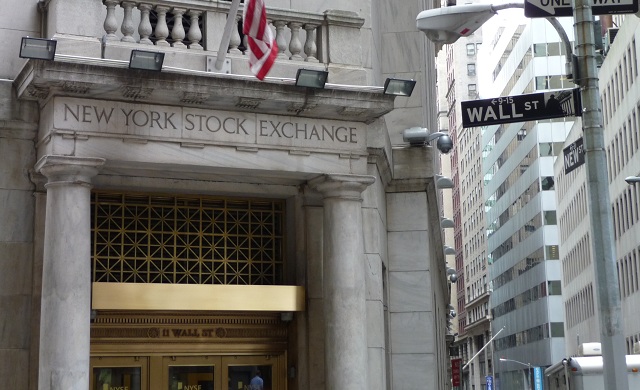Every evening Americans turn on their TV’s to catch up on the news of the day. Among the top five headlines of the day, there is inevitably something like this: “The Dow Jones Industrial Average was up 32 points today on news that . . .” For the average American, that’s the most attention that they pay to the stock market. Either the Dow is up or the Dow is down. If it’s up, things must be good. If it’s down, things must be bad.

The Outs
The big news in the last 24 hours is not so much whether the Dow is up or down. It’s who is in and who is out as the owners of the DJIA announced the impending replacement of three of its currently tracked companies with three new members. At the close of business on Friday, September 20th, Hewlett-Packard (NYSE:HPQ), Bank of America (NYSE:BAC), and Alcoa (NYSE:AA) will each be taking down the plaques on their walls that say “Proud member of the Dow Jones Industrial Average.”
Of course, I am speaking figuratively concerning the plaques, but there is a certain stigma attached to no longer being a member of what some consider to be an elite club. Many people, if not most, believe that the companies included in the Dow are the biggest and best. That is not true. The Dow is a composite of 30 companies that are believed to be representative of all of the companies listed on the NASDAQ and the New York Stock Exchange. Admission to the Dow has less to do with the size of a company as it does with its share price. Even then, it is not about how high the share price is, but more about how well it represents a particular sector.
If a company’s share price is considered very high compared to others in the composite, movement in that company’s stock will have an a stronger influence on the average than the others. If the share price is too low, it will have no impact at all. In fact, Bank of America stock is currently $14.00 per share and Alcoa share price is at $8.00, both too low to have an impact on the average. Hewlett-Packard’s dismissal is not about it’s price. It is about its relevance and its ability to reflect the mood of the rapidly changing technology market. HP is narrowly focused in a sector whose horizons are continually expanding.
The Ins
The replacement companies that will begin inclusion in the average on September 23rd, are Goldman Sachs (NYSE:GS), Visa (NYSE:V), and Nike (LSE:NKE). GS’ share price is currently at $165.00, Visa is at $184.00, and Nike is at $67.00.
Of note, IBM (NYSE:IBM) share price is at $187.00. IBM? Who said anything about IBM? Actually I did, two paragraphs ago. Its share price currently represents about 9.5% of the Dow average. When one company out of 30 has a 10% influence, any activity in that stock can cause a skewed swing in the index. So, do you tell IBM to take a hike? I don’t think so. You bring in the likes of Goldman Sachs and Visa to reduce the lopsided influence of IBM. It makes perfect sense. The move will not dilute the IBM influence entirely, but it will reduce IBM’s undue influence.
The IBM influence should answer the questions being asked by some as to why companies like Google (NASDAQ:GOOG) and Apple (NASDQ:AAPL), whose share prices are $188.00 and $471.00 respectively. Companies with share prices of that magnitude would distort the index even further.
Take Out the In
Now, for a personal opinion. I suggest that the current additions represent a need to a name change. Take out the “in.” When the Dow was created in 1884, all of the companies were considered “industrial” by nature. It would be difficult to describes the member companies as industrial at this point. The Dow is trying to keep in pace with the times by admitting representative stocks. Since most of the stocks are not industrial by definition, why not take “industrial” out of the official name?
That’s my opinion. It’s not important, no one cares, and I am wasting ink . . . or whatever it is that makes all those black letters on my screen.

 Hot Features
Hot Features













